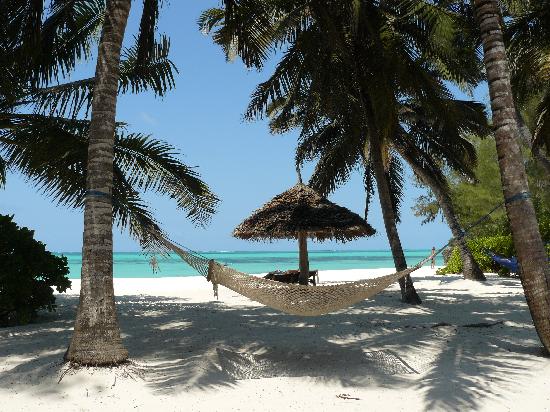Zanzibar beer: Alcohol shortage hits Tanzania’s spice islands
Zanzibar, the renowned spice islands, confronts a scarcity of alcohol, posing a threat to the tourism industry of one of Africa’s premier travel hotspots.
The Tanzanian archipelago relies heavily on tourism, which accounts for approximately 90% of its foreign revenue.
Following a disruption in the supply chain due to a sudden change in importers, beer prices have surged nearly 100%.
Recently, the island’s tourism minister resigned, citing substandard working conditions, though some speculate it may be connected to the alcohol supply issues.
Renowned for their exquisite sandy beaches and vibrant cultural legacy, these Indian Ocean islands draw tourists from across the globe.
Zanzibar earned recognition as one of the top 10 travel destinations in Africa in various tour magazines last year.
However, hoteliers caution that the alcohol supply problems could tarnish the island’s allure for tourists.
Numerous tourist establishments along Matemwa beaches, situated in the north of Zanzibar’s main island, are only offering soft drinks, prompting visitors in the area to travel to the main city, Stone Town, for alcoholic beverages.
Mr Mshenga’s business selling beer and seafood has been badly hit.
“We are running short of beer at my bar, and I just have a stock of soft drinks,” he told the BBC. “The government has to take action. It is the high season now, it is very hot and these tourists need joy, they need cold beer on these beaches.”
An American tourist, who did not want to be named, said: “I love Zanzibar and its beaches. The people are amazing and the only challenge I feel now is I can’t get hard liquor. I want to have spirits or even whisky but nothing is found in the hotel – they instead advised me to order it from Stone Town.”
The local manufacture of alcohol is banned in Zanzibar, whose population is largely Muslim.
Most of the alcohol sold on the islands comes from mainland Tanzania, while some is imported from South Africa.
The initial shortage early this year began when the Zanzibar Liquor Control Board (ZLCB) delayed renewed permits for the three established importers – One Stop, Scotch Store, and ZMMI.
It is not clear why the licenses of the three firms, which had supplied alcohol to the island for more than two decades, were not renewed.
For alcohol importers to get licensed, they must be Zanzibari-born residents with a clean tax record, a warehouse, and a delivery vehicle.
Additionally, importers must also pay a $12,000 (£10,000) annual fee to the regulatory board.
Last month, ZLCB granted licenses to three new companies – Kifaru, Bevko, and Zanzi Imports – but hoteliers say they are still struggling to meet the demand.
The new firms are reportedly entangled in a lengthy vetting process amid reports that some non-Zanzibaris are involved in the operations of the companies in contravention of the law.
The situation has been complicated further after the three previous license holders filed appeals, asking the government to renew their liquor import permits.
Zanzibar’s liquor stores are struggling to keep shelves stocked.
“There is an alcohol shortage in Zanzibar and we’ve already informed authorities about the tourism sector’s situation,” Rahim Mbarouk, chairman of the Zanzibar Tourism Investment Association, told the BBC.
The price of beer has gone up from 2,500 shillings ($1; £0.80) to 5,000 shillings, according to Neema Meena, a frequent traveler to Zanzibar from mainland Tanzania.
Some popular alcohol brands, like Safari, are said to be completely unavailable.
“This shortage hits hard,” Frank John Kahamu, secretary at the Amani Alcohol Merchants Union, told privately-owned The Citizen website.
Mr Kahamu said more than 3,000 workers could lose their jobs if the situation continued.
“We can’t keep paying wages with empty shelves.”
ZLCB chairperson Juma Chum declined to respond when the BBC reached out for comment.
But Issa Mahfoudh Haji, a senior official in the Ministry of State responsible for the ZLCB, told state media: “We have heard about the complaints and we need to find details about the controversy.”
Simai Mohammed Said resigned as tourism minister last week, citing “unfavorable and disruptive working conditions”.
His resignation has been linked to a recent press conference where he publicly accused the ZLCB of mismanaging the liquor industry.
“If we fail to plan, including having enough stock of alcoholic beverages, we frustrate our visitors,” he said, according to state media.
But while swearing in the new tourism minister on Thursday, Zanzibar President Hussein Mwinyi suggested Mr Said had a conflict of interest.
Reports link one of Mr Said’s relatives to one company whose license was not renewed.
“If you have a bar, and you find out authorities have not given access to alcohol to your bar, then be transparent and tell the public that there is a conflict of interest,” President Mwinyi said, referring to Mr Said.
The BBC has approached Mr Said for comment.
The crisis comes amid soaring tourist arrivals in the semi-autonomous Tanzanian islands.
They witnessed a 16% surge in international visitors last year, welcoming a record more than 630,000 tourists, according to the annual tourism report.
The tourist upsurge was due to significant increases in arrivals from India and Russia, the report said.



